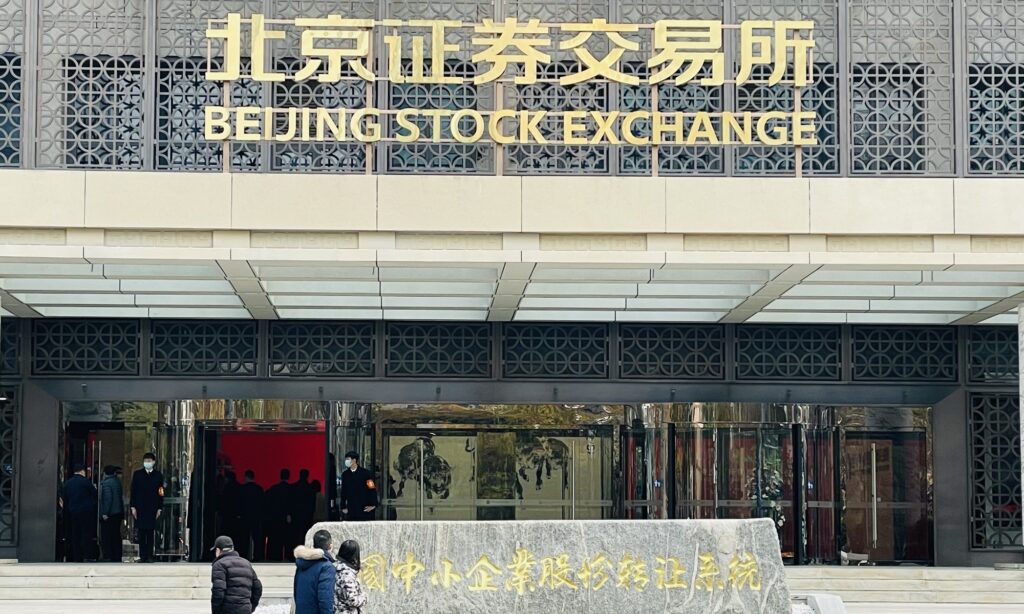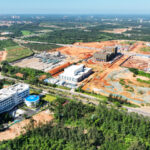China’s securities regulator on Friday releases a new round of comprehensive reforms for the Beijing Stock Exchange (BSE), with concrete measures taken to further improve the bourse’s stable development and high quality, and better serve small and medium-sized enterprises (SMEs).
The measures, of which a key part is improving market liquidity, aim to improve market size, efficiency, quality and activity in three to five years, and build the bourse into a market of mature investors and a complete basic system in five to 10 years.
The guideline is in line with the top-level meeting held in July of this year, which said that China’s capital market should be activated to boost investor confidence, following a series of targeted and substantive measures launched to revitalize the capital market and boost investor confidence.
The guideline is an improvement for the BSE after nearly two years’ development and will further perfect the system and better serve the small real economy, Dong Shaopeng, a senior research fellow at the Chongyang Institute for Financial Studies at the Renmin University of China, told the Global Times on Friday.
As for how to speed up the high-quality supply of high-quality listed companies, China Securities Regulatory Commissions (CSRC) said it will improve the quality of listed companies and allow eligible high-quality SMEs to issue IPOs and be listed on the BSE.
CSRC also highlighted the importance of liquidity, saying “it is essential to have sufficient liquidity to support a further development of the BSE,” emphasizing that liquidity is in the blood of exchanges.
To improve liquidity, CSRC said it will expand the investor team, optimize the investor structure, and increase investor participation to introduce more funds into the market, and will also enhance transaction activity by improving the trading mechanism.
The purpose is to gather a group of high-quality listed companies that can support market depth, reflect market advantages, and have brand effects as soon as possible to provide effective support for liquidity improvement, it said, adding that the market size, efficiency and the quality will be improved significantly with three to five years of efforts.
Since the opening of the BSE in 2021, the average daily turnover has been around 1 billion yuan ($137 million), and the liquidity level is “in line with the usual liquidity performance of small and medium-sized stocks,” CSRC said.
However, CSRC said that the indicators for evaluating the liquidity of the BSE cannot simply be benchmarked against the Shanghai and Shenzhen stock exchanges, due to the large differences in service objects, participants and development stages.
CSRC also said it will guide public offering funds to expand investment in BSE, and allow private equity funds to increase their holdings of shares in companies they hold through the secondary market.
Further optimizing the issuance and listing system of the BSE, and reducing the cost and waiting time of high-quality companies to go public are also highlighted in the measures.
At present, there are 217 listed companies on the BSE, nearly three times the number when the market opened, of which high-tech enterprises account for over 90 percent. To date, there are 5.57 million qualified investors in the BSE.
The BSE started trading on November 15 of 2021, with 81 companies debuting on the bourse.
China’s financial authorities have stressed efforts to enhance financial support for the real economy, as well as to prevent and defuse local-government debt risks.
Financial support for the real economy should be strong in intensity, steady in pace, sound in structure and sustainable in prices, the People’s Bank of China said in a statement released on August 20, after a joint meeting with the National Financial Regulatory Administration and the China Securities Regulatory Commission.
(Global Times)




